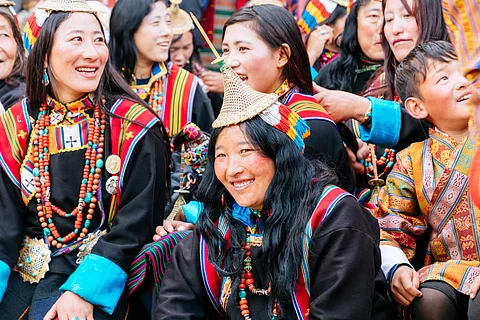

ISTOCK
Nestled in the Himalayas, Bhutan is a tiny country that’s earned a huge reputation as the world’s “happiest country.” But what’s their secret? While most countries judge their success by how much money they make, Bhutan does something completely different—they measure Gross National Happiness, or GNH. That means they care about how happy and healthy their people are, not just how rich the country is.
Bhutan’s leaders believe that happiness comes from a balance of things: protecting the environment, celebrating culture, building strong communities, and providing free healthcare and education. For example, more than half of Bhutan is covered in forests, and it’s even written in the country’s laws that at least 60% of the land must stay forested forever! People celebrate colourful festivals, wear traditional clothes, and enjoy delicious foods unique to their culture. Instead of huge cities, there are small towns and friendly villages where neighbours know each other and families often live together for generations.
Another thing that makes Bhutan unique is how it has opened up to the world slowly and carefully. Tourists can visit, but numbers are kept low to protect the country’s natural beauty and culture. In schools, students learn about kindness, respect, and taking care of the planet. While life in Bhutan isn’t perfect—there are challenges like anywhere else—the country’s focus on happiness and wellbeing has inspired people across the globe. So, when you hear about the “happiest country in the world,” remember Bhutan’s secret: true happiness isn’t just about money, but about caring for people, traditions, and the natural world.
This mountain nation is one of the world’s only carbon-negative countries, thanks to its vast forests and clean energy.
Bhutanese people wear traditional clothes (gho for men, kira for women) when in schools, offices, or government buildings.
Bhutan was one of the last countries to allow TV and the internet, keeping outside influences at bay for decades.